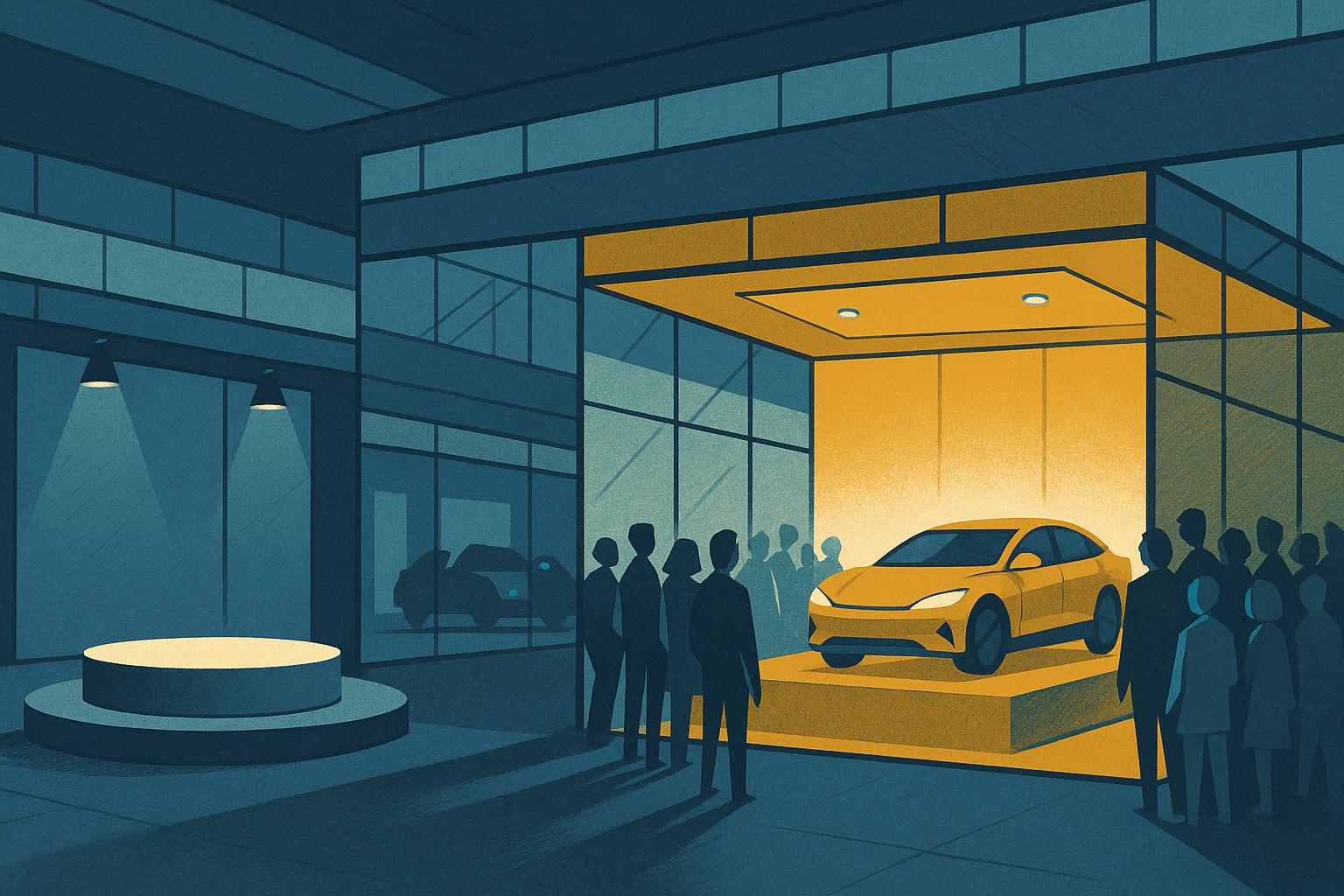Tesla’s UK new-car registrations plunged to just 987 units in July 2025 — a fall of nearly 60% compared with 2,462 vehicles registered in July 2024, according to figures from the Society of Motor Manufacturers and Traders. While the wider UK car market contracted by only 5% in the same period, Tesla’s sharper decline points to company-specific challenges — not a broader market downturn.
By contrast, Chinese manufacturer BYD recorded a dramatic surge, with registrations rising to over 3,100 vehicles — more than fourfold year-on-year growth. This cements BYD’s emergence as a leading electric vehicle competitor in the UK and across Europe. Despite being excluded from the UK’s £650 million EV grant scheme on manufacturing emissions criteria, BYD’s price advantage and rapidly growing dealership network — on track to reach 120 UK outlets by the end of 2025 — have driven strong consumer uptake.
Tesla’s market share slipped to 0.7% in July — down from approximately 1.7% a year earlier. The company faces headwinds including increasing competitive pressure from Chinese brands, confusion over subsidy eligibility, and the broader impact of CEO Elon Musk’s high-profile public persona on buyer sentiment.
A recent refresh of the Model Y and renewed support from Tesla’s board for Elon Musk’s leadership have yet to reverse declining demand. Analysts suggest that BYD’s focus on software-rich vehicles, aggressive pricing, and visible presence on UK high streets is resonating with cost-conscious buyers at a time when EV affordability is under greater scrutiny.
Tesla’s UK downturn reflects wider challenges in the European electric vehicle sector. July 2025 saw halved EV sales in key markets such as Germany, France, and Sweden, while Tesla’s European deliveries are down by more than 30% year to date. At the same time, BYD has overtaken Tesla globally in battery-only EV sales for the second quarter of 2025, disrupting established hierarchies and shifting the competitive landscape.
Tesla’s troubles appear to stem from multiple factors: consumer backlash linked to Musk’s public and political activity, more affordable Chinese competitors capturing market share, and uncertainty around the UK’s shifting EV subsidy regime. The brand’s premium positioning, once a strength, has become a liability as price competition intensifies and new entrants flood the market with lower-cost, software-enabled models.
Despite the tough environment, the overall UK electric vehicle market has remained resilient — with EV sales up 9% by value and projected to reach a 23.8% share of new registrations by the end of the year. However, Tesla’s slide is a warning sign that even established leaders can lose ground quickly if they cannot adapt to fast-changing consumer preferences and market conditions.
Tesla’s UK slump is symptomatic of deeper structural changes in the EV sector — a loss of momentum for early leaders, and a shift in expectations from a market now defined by price, local presence, and practical value rather than novelty alone. BYD’s rapid growth and ability to outsell Tesla in a single month signals a decisive turning point. For Tesla, regaining ground in the UK will mean addressing pricing, consumer perception, and strategic clarity as competition from China — and from new European entrants — continues to intensify.



